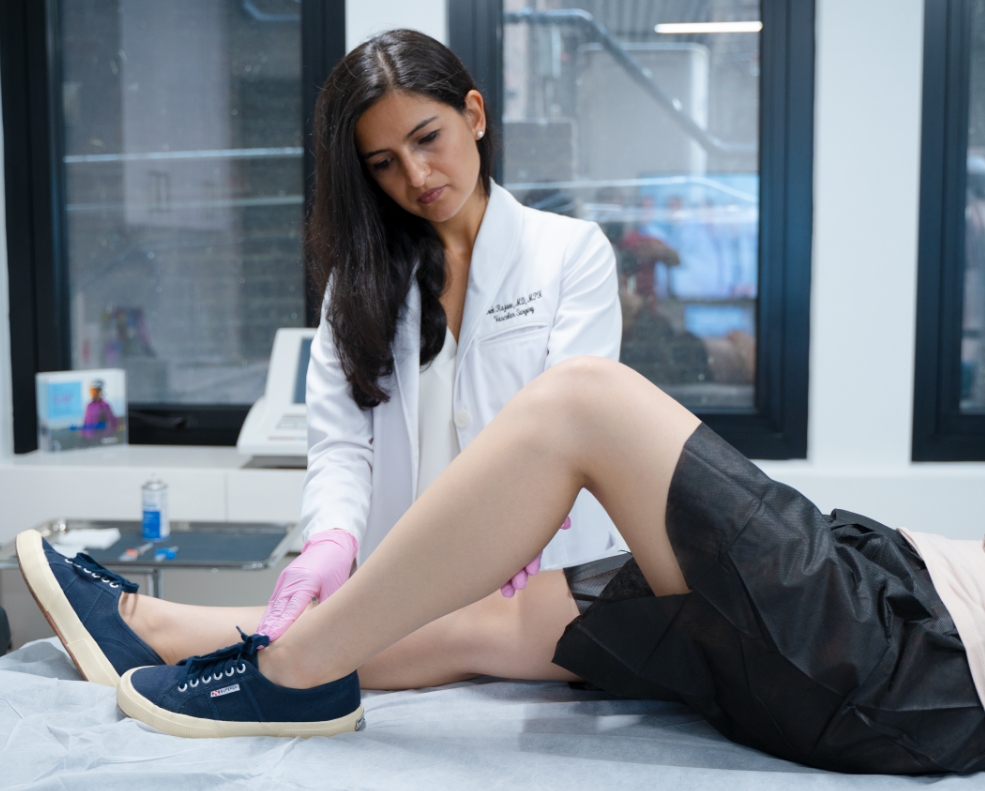
Why Might Someone Need to See A Vein Doctor?
Vein-related issues can significantly impact an individual’s quality of life, causing discomfort, pain, and sometimes leading to severe health complications. Knowing when and why to see a vein doctor, and understanding what kind of doctor specializes in vein conditions, is crucial for effective treatment and management. This article explores why someone might need to see a vein doctor, what a vein doctor is called, and what kind of doctor is a vein specialist.
Why Might Someone Need to See a Vein Doctor?
There are several reasons why individuals might need to consult a vein doctor. These reasons range from cosmetic concerns to serious medical conditions that require immediate attention.
Chronic Leg Pain and Swelling
One of the primary reasons to see a vein doctor is chronic leg pain and swelling. This discomfort can be a symptom of underlying vein issues, such as varicose veins or deep vein thrombosis (DVT). Persistent pain and swelling should not be ignored, as they can indicate more serious problems.
Varicose and Spider Veins
Varicose veins are enlarged, twisted veins that often appear on the legs and feet. Spider veins, which are smaller and closer to the skin’s surface, can also cause discomfort and cosmetic concerns. Both conditions are commonly treated by vein specialists and can benefit from medical intervention to prevent further complications.
Leg Ulcers
Leg ulcers, or sores that do not heal properly, can develop due to poor blood circulation and vein issues. These ulcers can be painful and prone to infection. A vein doctor can provide specialized treatment to promote healing and prevent recurrence.
Skin Discoloration and Changes
Changes in skin color and texture, particularly around the ankles and lower legs, can be a sign of chronic venous insufficiency. This condition occurs when the veins are unable to efficiently return blood to the heart, leading to pooling of blood and subsequent skin changes. A vein specialist can diagnose and treat these conditions effectively.
Blood Clots
The presence of blood clots in the veins, such as those found in cases of DVT, requires immediate medical attention. Blood clots can travel to the lungs and cause a pulmonary embolism, a potentially life-threatening condition. Vein doctors are trained to diagnose and treat blood clots to prevent serious health risks.
What is a Vein Doctor Called?
A vein doctor is known by several names, depending on their specific training and area of expertise. Understanding the different types of vein specialists can help patients find the right doctor for their needs.
Phlebologist
A phlebologist is a doctor who specializes in the diagnosis and treatment of vein disorders. Phlebologists are trained to manage conditions such as varicose veins, spider veins, and chronic venous insufficiency. They often use minimally invasive techniques, such as sclerotherapy and endovenous laser therapy, to treat vein issues.
Vascular Surgeon
A vascular surgeon is a specialist who performs surgical procedures to treat vascular conditions, including vein disorders. Vascular surgeons are equipped to handle more complex cases that require surgical intervention, such as vein stripping and ligation or the removal of blood clots.
Dermatologist
Dermatologists, particularly those with expertise in cosmetic and surgical dermatology, can also treat vein-related conditions. They often address spider veins and varicose veins using laser treatments and other non-surgical methods.
Interventional Radiologist
Interventional radiologists use imaging techniques to guide minimally invasive procedures for treating vein conditions. These specialists are skilled in procedures such as radiofrequency ablation and endovenous laser therapy, which are used to treat varicose veins and other vein issues.
What Kind of Doctor is a Vein Specialist?
Vein specialists come from various medical backgrounds, each bringing unique expertise to the treatment of vein conditions. The following outlines the types of doctors who may be considered vein specialists.
Training and Certification
Vein specialists typically undergo extensive training in their respective fields, including residencies and fellowships in vascular medicine, surgery, dermatology, or interventional radiology. Board certification in their specialty indicates a high level of expertise and commitment to ongoing education in vein treatment.
Multidisciplinary Approach
A multidisciplinary approach is often employed in the treatment of vein conditions. This means that vein specialists may collaborate with other healthcare providers, such as primary care physicians, cardiologists, and endocrinologists, to ensure comprehensive care for patients with complex vein issues.
Focus on Minimally Invasive Treatments
Vein specialists are adept at using minimally invasive treatments to address vein conditions. These treatments include sclerotherapy, where a solution is injected into the vein to collapse it, and endovenous laser therapy, which uses laser energy to close off affected veins. These procedures are typically performed in an outpatient setting, with minimal discomfort and recovery time.
Conclusion:
The need to see a vein doctor arises from various vein-related issues, including chronic leg pain, varicose and spider veins, leg ulcers, skin changes, and blood clots. Understanding what a vein doctor is called and the types of specialists available can help patients seek the appropriate care. Phlebologists, vascular surgeons, dermatologists, and interventional radiologists are among the doctors who specialize in treating vein conditions. Their expertise, combined with a multidisciplinary approach and focus on minimally invasive treatments, ensures effective management of vein issues, improving patients’ quality of life and preventing serious complications.





Leave Your Comment